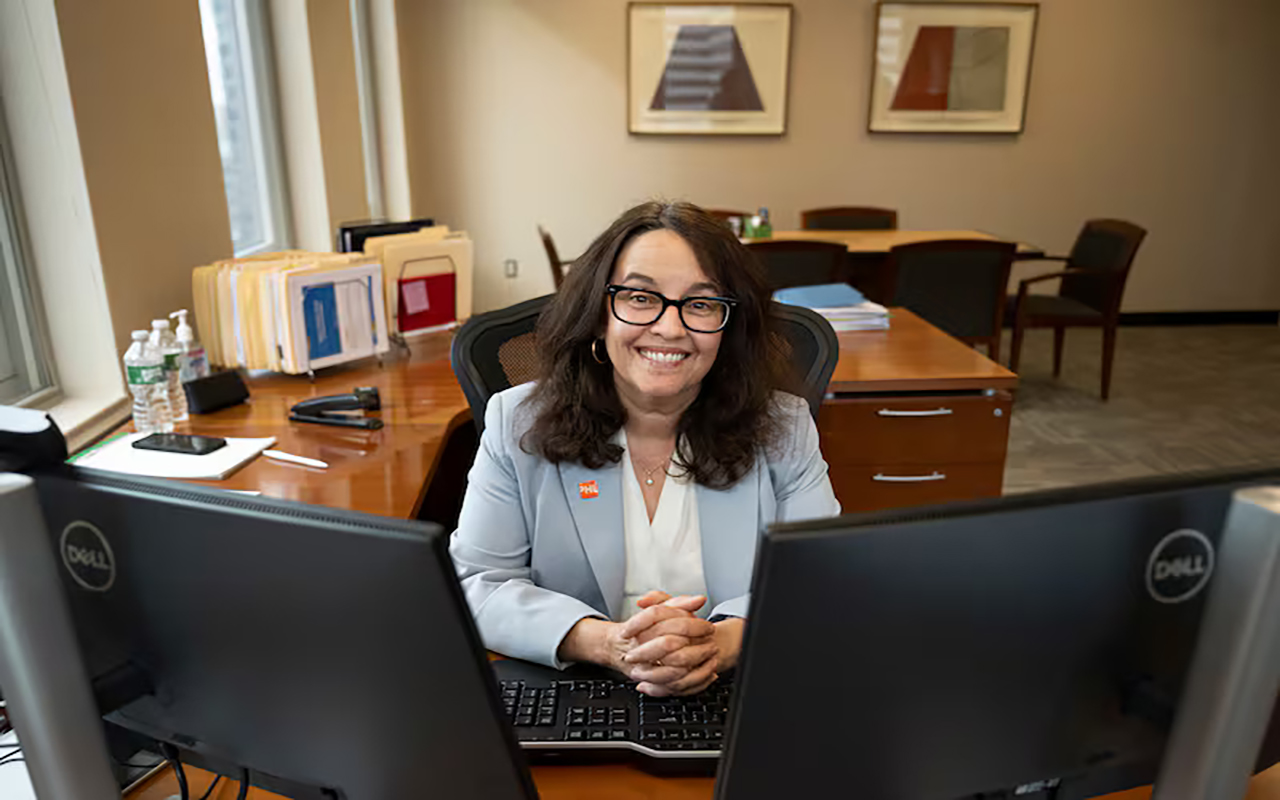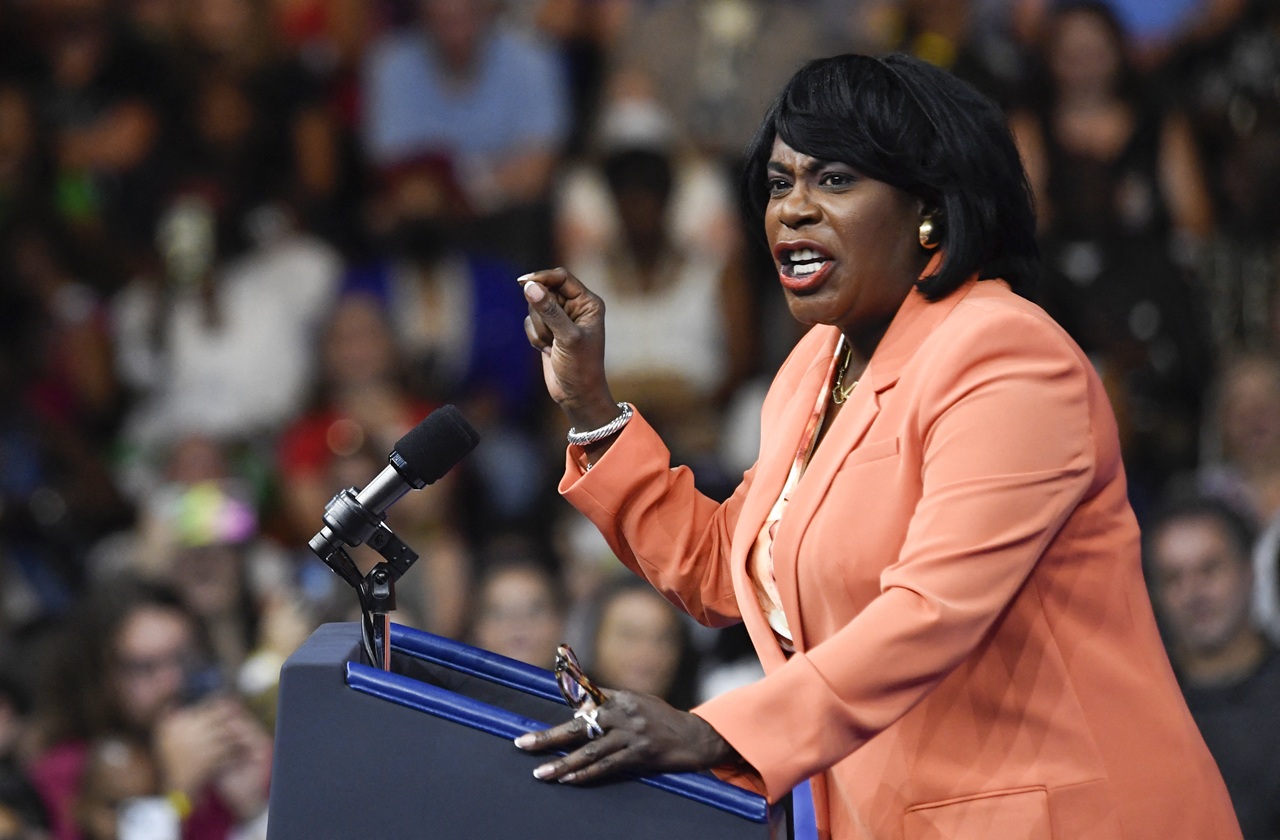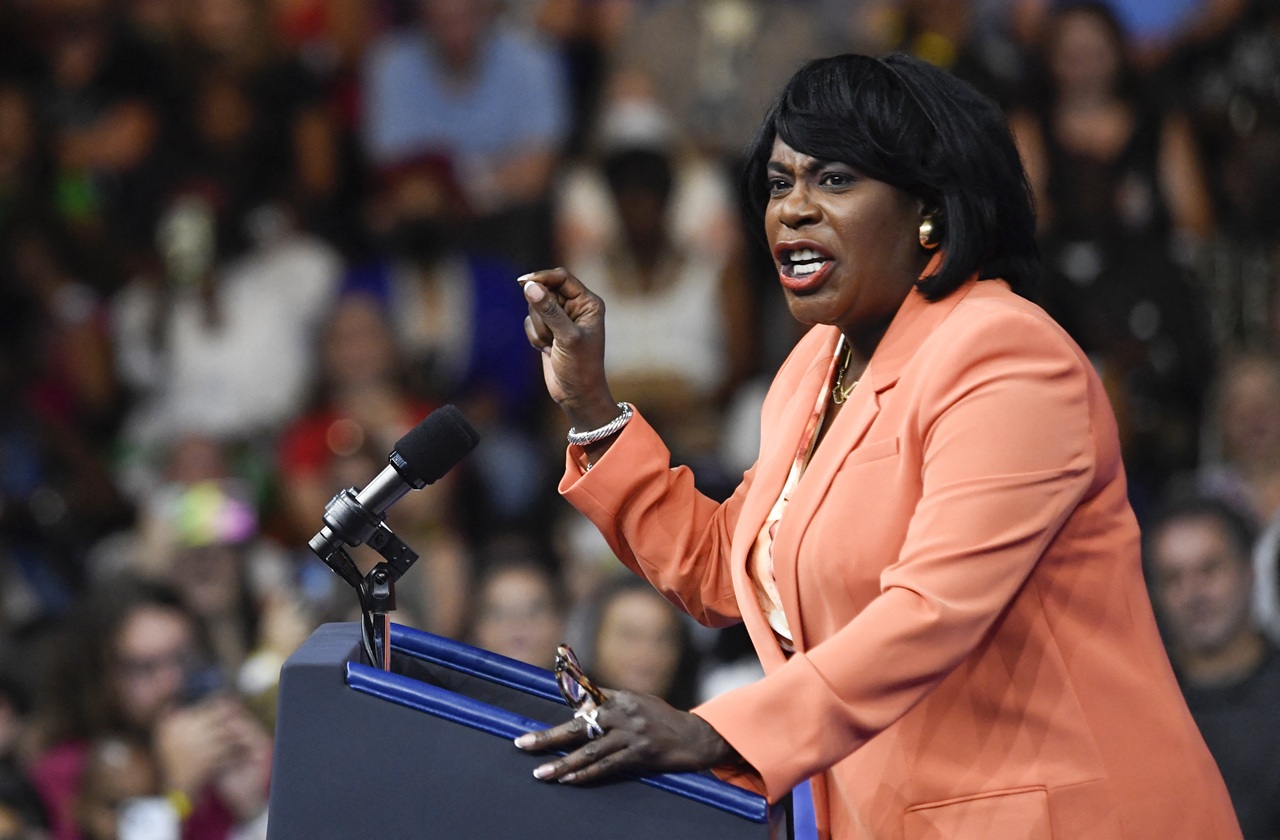As a student, educator, union official, administrator, superintendent, and now secretary of education, Pedro Rivera has been involved in practically every aspect of public education, from North Philly to Harrisburg.
Politics aside, this is the story of how Pedro Rivera became secretary of education of Pennsylvania after serving for years at the School District of Philadelphia and as superintendent of the School District of Lancaster.
Rivera was born and raised in a single parent household in the Hunting Park section of North Philadelphia. His mother was only 16 years old when she gave birth to him before even completing high school. His grandmother — who came to Philadelphia from Puerto Rico to take a job in a sewing factory— lived with them, along with other members of the family.
“When I think of what I’ve been blessed to accomplish it is partly because of having a really involved mother, aunt, grandmother and family,” Rivera said.
Rivera himself is not a product of public education, but having grown up in a poor family in North Philly he got to live and see many of the educational challenges faced by the community.
He went to St. Henry’s and then Cardinal Dougherty, both Catholic schools which have long been closed. Rivera remembers being a “angelic” kid with great grades, at least up to the third grade.
“That’s when my family dynamics changed, so my needs in school changed,” Rivera said. It was then when his grandmother — the backbone of the family — moved out to live on her own, his mother took on a third job, and his aunt was also busy working.
“I went from a time when there was always someone home to a time when there was practically no one home,” Rivera said. “I was responsible for getting myself to school and taking care of myself after school.”

Pennsylvania Secretary of Education, Pedro Rivera (right) during his swearing-in ceremony, is accompanied, from left to right, by Secretary of the Commonwealth Pedro Cortes; Governor Tom Wolf; Rivera's mother, aunt, and wife. Courtesy photo.
Being the oldest grandson, Rivera was already used to having certain responsibilities beyond his age. As early as he can remember, he would take his grandmother to doctor’s appointments and social service providers even if that often meant he would have to miss school.
“I was the translator, which as a 5, 6, 7-year-old that’s a big responsibility,” Rivera said. “Even though my family worked they never made enough to make ends meet.”
On one hand, he remembers his grandmother would talk to him in Spanish but he was not allowed to speak to her in Spanish.
On the other, he remembers being tested in school for English proficiency despite the fact that it was his first language.
“I speak (English) with a ‘Spanish accent’ because that’s how I was raised,” Rivera said. “When it comes to Spanish, I can read it and write it perfectly but I don’t always speak with the confidence that I should.”
Rivera was the first one in his family to attend college. Up to that moment he had lived all his life in the Latino community in North Philadelphia, conducting virtually every aspect of his life there.
“Back then no one left the community and you still see it today,” Rivera said. “That’s how I grew up.”
When he went to Penn State, he was surrounded, for the first time in his life, by people from different socioeconomic backgrounds.
“Kids had computers in their rooms and I had to go to the library or the computer lab at one o’clock or two o’clock in the morning for open lab time,” Rivera said. “There were many folks I thought were rich, but now I realize they were middle class.”
Rivera was originally an engineering major but after the first semester, he had to switch because he couldn't afford the equipment he needed. The financial aspect was only one of the challenges he had to overcome.
“I wasn't prepared for college. I had to deal with a lot of issues in terms of aptitude, learning, and also socially,” Rivera said. “I struggled but I was never afraid to ask for help and I got help from a lot of professors and counselors.”
When asked about his GPA, Rivera laughs and says he can’t remember but he said, “it was enough to graduate.”
“When I really started to excel is when I got into the actual practice of teaching,” he added.
After graduating with a bachelor's degree in Education from Penn State, Rivera received his elementary certification at Temple University. Later on he completed a master’s in Education Administration from Cheyney University and received his superintendent letter of eligibility from Arcadia University.
He then went back to Hunting Park, to teach in the community where he grew up. He worked in the School District of Philadelphia, tutoring after school and teaching GED at night.
“I fell in love with teaching through tutoring. I really enjoyed the interaction, teaching someone something new and seeing that look in their face when they get it,” Rivera said. “It’s a really good feeling when you know you help someone get to the point where they understand and they want to continue to learn.”

Rivera during one of his many visits to schools across Pennsylvania. Courtesy photo.
Rivera obtained a designation as bilingual ESL teacher, and started teaching at Finnletter, in Olney, where most of his students were not Latino but Albanian.
He also taught at Kensington High School, where he had the opportunity to take some of his students for the first time to Penn’s Landing — just three stops away in the subway — and to Six Flags in New Jersey.
“There are students who have lived in Philadelphia all their lives and have never experienced what it’s like to go to the waterfront, to have ice cream in South Street, or to jump in the fountain at Logan Square,” said Rivera, who didn’t visit the Art Museum until he was a teacher.
After teaching for a number of years, he moved into administration, and served with the Philadelphia Federation of Teachers, working on conditions for teaching in what was then known as the Kensington and Edison clusters —now the Central East region.
“I never anticipated being in the teachers union,” Rivera said. “I never wanted to go into the politics of teaching. I just wanted to serve in schools.”
He became assistant principal at Kensington Culinary — now the Kensington Health Sciences Academy — and later principal of Sheridan Elementary School.
“Almost all my career had been serving in North Philadelphia,” said Rivera. But after Sheridan, he was asked to serve as executive director of high schools and moved to the district’s office downtown.
“I worked closely with schools helping them identify programs that were beneficial for students, and made recommendations to implement them,” said Rivera. “But that was Philadelphia’s first deficit, and it (OR I) went from building good programs to figuring out what we were going to reduce.”
In his next move, Rivera was asked to serve as director of the human resources department at the school district. By then he already knew one day he wanted to be superintendent, but he didn’t think he was ready for it. A mentor and friend convinced him to go to a job interview for sake of the experience, and so he applied for the job in Lancaster. It was the first job he ever applied for outside of Philadelphia. To his surprise, he was invited to a second interview, and a third, and a fourth…
“I remember my wife saying ‘you are going to get this job’, and I thought ‘there’s no way I’m getting it,’” Rivera said.
After a fifth interview in the format of a community meeting, he was finally selected to run the School District of Lancaster, an urban district of about about 11,500 students (17 percent of whom are learning English) that was facing many challenges.
“Lancaster is a lot like North Philadelphia in terms of the communities you serve,” Rivera said.
Rivera managed to improved graduation rates and state assessment scores, as well as student participation in programs aimed at college success. He also led the development and implementation of a new preK-12 curriculum, and a community schools model that provides students free breakfast and lunch, eyeglasses, dental care and medical services. He also increased the district’s fund balance from $4 million to $9 million.

For Rivera, the daily challenge is to keep his staff motivated to give 100 percent for students across Pennsylvania. Courtesy photo.
“When you are dealing with an urban environment, you have every type of kid, from low level in reading, writing and math, to high levels; from some of the poorest families to some of the more affluent,” Rivera said. “When you are looking at educating that vastly different (group) of students and communities, you really learn to differentiate and focus on the children and their needs.”
Rivera met Tom Wolf when the future governor was was campaigning for the Democratic endorsement.
“We got to talk about education and it was really great to hear about his vision,” Rivera said.
After Wolf was elected governor, Rivera was asked to serve on the transition team. Once Wolf was sworn in, Rivera got the phone call.
“I was just as surprised as anyone considering that I’m not a policy person,” Rivera said. “Ultimately this decision was not about me wanting to get involved in politics. For me, doing this job and serving in this capacity is really just an opportunity to support education, teaching and learning, so I’m more at this from a practitioner's standpoint than the politics.”
Rivera hopes to have an impact across the state but he knows that Pennsylvanians will evaluate his job in big part depending on what he manages to accomplish in urban areas with the largest concentration of students.
“What we have to do is continue to invest in Philadelphia and in our urban areas so that our schools support our children and they can grow up to contribute to our state,” Rivera said. “I hope that when folks see me in this position they know that I understand what they have to deal with and that helps me make better decisions, but also that I didn’t take a traditional path here. I’m only keeping the seat warm for the next student to take it.”














LEAVE A COMMENT: